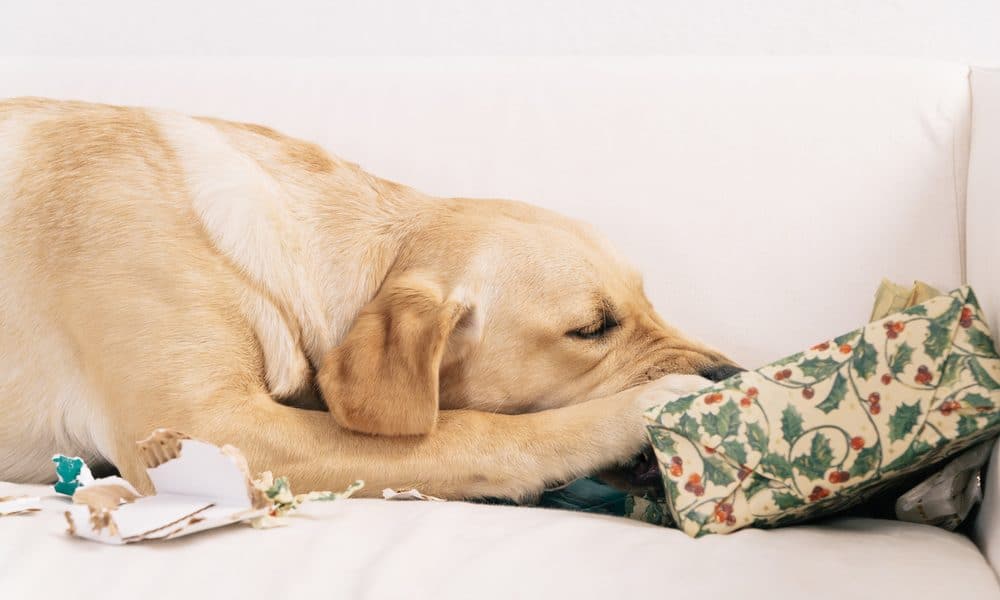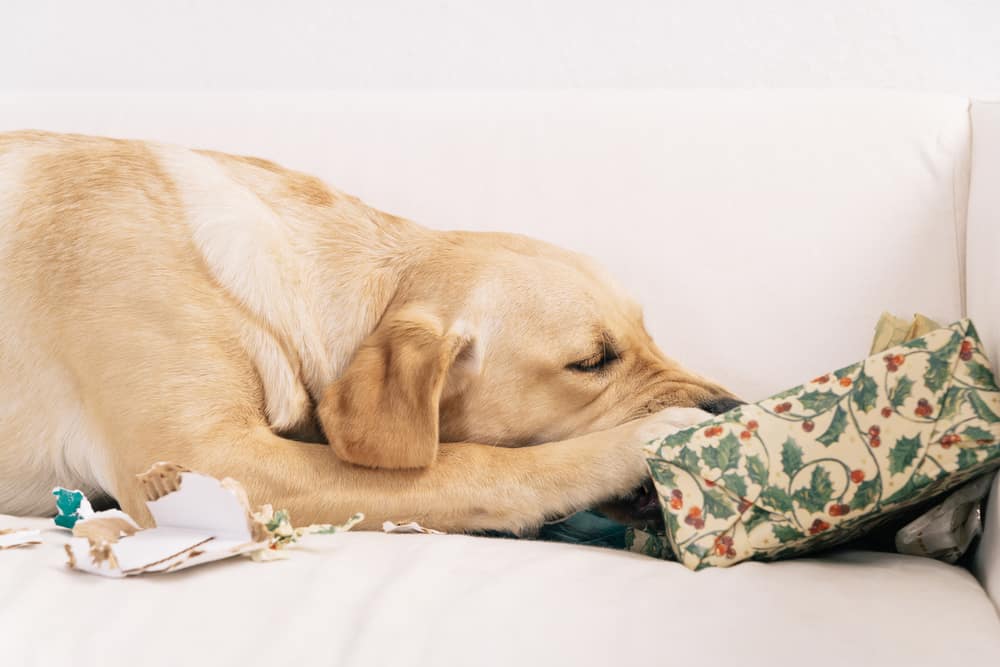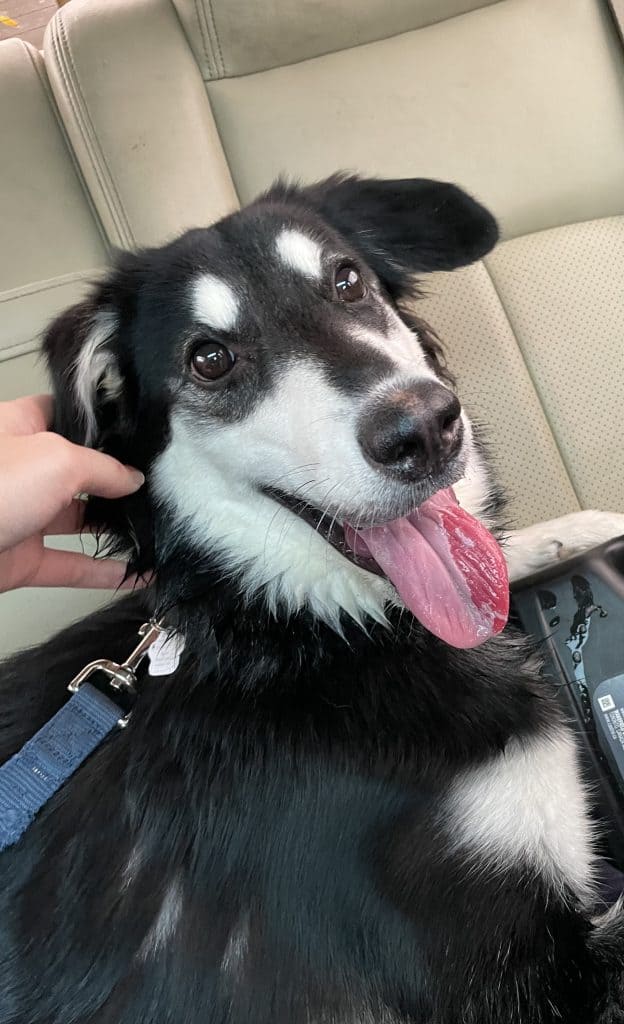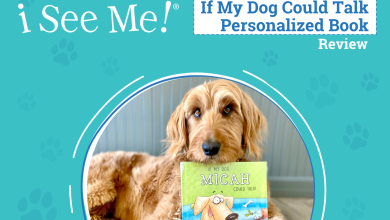Curious Puppy Seriously Injured After Chewing on Alkaline Batteries

You know how important it is to dog-proof your Christmas tree. You’re careful to not feed your dog toxic treats during your big holiday meal. You’ve skipped the rawhide chew in favor of safer, healthier treats to fill your dog’s stocking. But there’s one more thing to consider to keep your dog safe during the holidays and all year long.
Keeping kids from sneaking an early peek at their Christmas presents is a regular game parents play. This holiday season, pet parents also need to ensure their furry family members don’t open a dangerous surprise hiding with one of those cool electronic gifts waiting under the tree.

According to a major battery manufacturer, the weeks of Black Friday, before Christmas, and after Christmas are the three weeks when the most batteries are sold. Alkaline, or dry cell batteries, are commonly used in electronic toys, and they can be very dangerous to pets who ingest or puncture them. The longer-lasting lithium batteries can be even more harmful.
“The concern with punctured alkaline batteries is that they pose a risk of causing severe tissue damage in the mouth, esophagus, and entire gastrointestinal (GI) tract,” said Dr. Renee Schmid, a senior veterinary toxicologist at Pet Poison Helpline. “If the battery is ingested, surgical or endoscopic removal may be required.”
Spencer Howald from London, Ontario, Canada recently returned home to find that her puppy Nova had found and started chewing on a battery she thought was out of reach.
“We left a package of batteries behind the gaming station on our fireplace mantle and apparently it had fallen to the floor. We noticed a black spot on the couch and realized Nova had been chewing on one of the batteries,” explained Howald. “There was a puncture, the battery was leaking, and it caused blisters on her tongue and gums. We called the emergency pet hospital, who had us contact the experts at Pet Poison Helpline.”
Once at London Regional Veterinary Emergency and Referral Hospital, the veterinary team found that Nova had ulcerations on her mouth and tongue. She was placed on medication for vomiting and nausea and her mouth was cleaned thoroughly with an oral dental rinse. They administered a sucralfate slurry to promote healing of any ulcers in the esophagus and GIT and an H2 blocker, which decreases the production of stomach acid. In addition, they gave her pain medication and placed her on a watered-down diet. They also evaluated an abdominal x-ray, and fortunately, Nova had not ingested any of the batteries.


“It was scary the day we brought her home, “added Howald. “She was crying and there was nothing more we could do. She’s doing really well now, all things considered, and she was back to her normal personality by the next day. It is really up to the pet owner to keep an eye out for these dangers.”
About a week after the incident, Howald took Nova to visit her regular veterinarian, who gave her a clean bill of health.
“While Nova’s case involved alkaline batteries, many of the newer toys use the button-sized lithium batteries,” added Dr. Schmid. “Lithium button batteries are even more dangerous than alkaline because they can easily be swallowed and get caught in the esophagus. There is also a concern of burns associated with the electrical current from the battery. Nearly 17 percent of battery-related cases received by Pet Poison Helpline in the last year involved lithium batteries.”
Pet Poison Helpline is available 24 hours, 7 days a week for pet owners and veterinary professionals who require assistance treating a potentially poisoned pet. The veterinarians and board-certified toxicologists provide treatment advice for poisoning cases of all species, including dogs, cats, birds, small mammals, large animals, and exotic species. As the most cost-effective option for animal poison control care, Pet Poison Helpline’s fee of $65 per incident includes follow-up consultations for the duration of the poison case.
Pet Poison Helpline is available in North America by calling 800-213-6680. Additional information can be found online at www.petpoisonhelpline.com.
This post contains affiliate links. If you make a purchase after clicking them, we may get a small commission. The Dogington Post is dedicated to finding the best products for dogs and we will never recommend a product that we don’t love.



